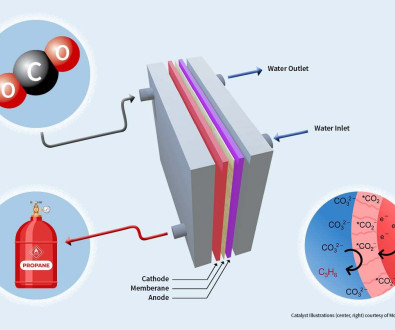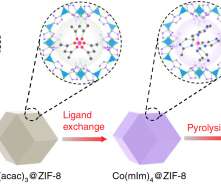IIT researchers develop electrolyzer that converts CO2 to propane
Green Car Congress
AUGUST 19, 2023
Researchers at Illinois Institute of Technology (IIT), with colleagues at the University of Pennsylvania and the University of Illinois at Chicago have developed an electrolyzer capable of converting carbon dioxide into propane in a manner that is both scalable and economically viable. —Esmaeilirad et al.




































Let's personalize your content